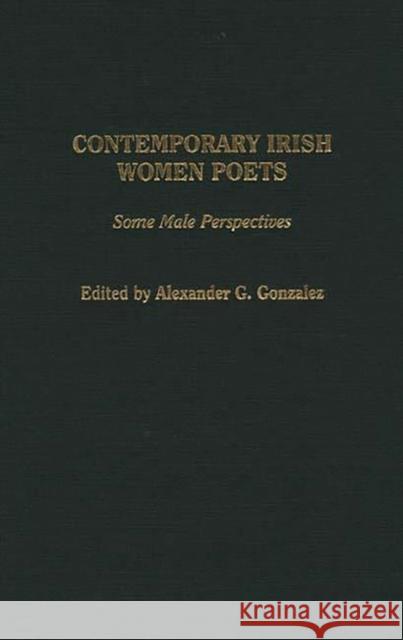Contemporary Irish Women Poets: Some Male Perspectives » książka
Contemporary Irish Women Poets: Some Male Perspectives
ISBN-13: 9780313309168 / Angielski / Twarda / 1999 / 208 str.
So many male critics have attacked Ireland's contemporary women poets -- whether through hostile reviews, outright silence, or condescending praise -- that the impression has been created that very few men appreciate these women's poetry. Gonzalez has produced the first book ever to appear in Irish studies in which men make it a point to praise literature written by Irish women. Included are two essays studying the structure of Eavan Boland's poetry sequences, some close readings of Medbh McGuckian's most challenging poems, and the first formal scholarly pieces ever devoted exclusively to Paula Meehan, Rita Ann Higgins, and Mary O'Malley. Additional chapters treat the works of Eilean Ni Chuilleanain and Nuala Ni Dhomhnaill.
Women poets have made substantial contributions to Irish literature, particularly in the last few decades. However, so many male critics have attacked Ireland's women poets, whether through hostile reviews, outright silence, or condescending praise, that the impression has been created that very few men appreciate these women's poetry. With some notable exceptions, most academic appraisals by men have been less than enthusiastic. Many women also point to the treatment these poets receive in various anthologies, which typically include only token portions of literature written by women. In his book, Gonzalez has responded to these slights by offering a forum to a significant number of men to express their highest praise for Ireland's women poets.
Until now, no book has ever appeared in Irish studies in which men make it a point to praise literature written by Irish women. In this book, Gonzalez includes two essays on each of Ireland's best-known women poets, Eavan Boland, Eilean Ni Chuilleanain, Nuala Ni Dhomhnaill, and Medbh McGuckian. Three other essays are the first formal scholarly pieces entirely dedicated to Paula Meehan, Rita Ann Higgins, or Mary O'Malley. In his pioneering effort, Gonzalez helps establish the place of these contemporary women poets in the Irish literary canon, corrects the popular misconception that male critics are unresponsive to their works, and encourages further exploration of Irish women poets by male scholars and critics.











